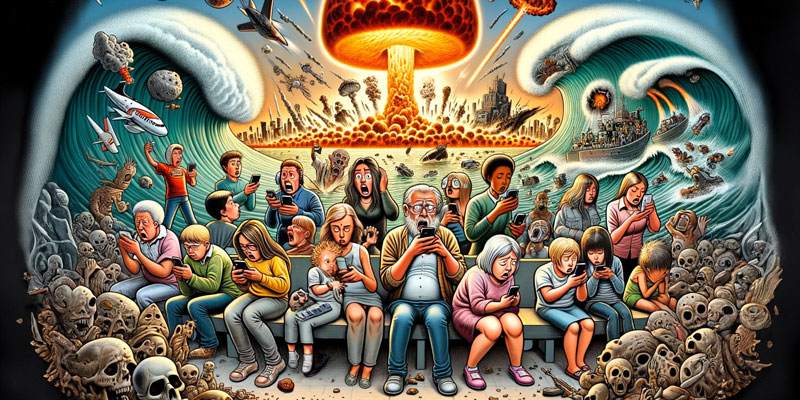
What is it about social media lately? (A hope for controlling the crisis.)
Almost in passing during a recent podcast featuring Greg McKeown, Tim Ferriss stepped into an idea I’ve been contemplating lately:
[A]s my job, I interview some of the top performers in the world, hundreds of them, and the change that I have seen for those people in that subset who are already, I think most people would agree, in the top one percent of one percent in terms of worldly achievement, the dramatic handicap that I’ve seen, the dramatic reduction in productivity that I’ve seen among those people who have succumbed to the siren song of social media specifically is jaw-dropping. It is truly unbelievable, just in the last 12 months, what I’ve observed. It really seems to be going parabolic.
Social media has been around for much longer than 12 months, so what has actually changed? I think it’s the sense of crisis. I used to experience brief periods when I couldn’t get myself off social media because something intense was going on — a war, a terrorist attack, controversial election activities, and so on. I only exaggerate a little if I report that I feel that way on any given Tuesday these days.
Naturally, because it’s social media, the addiction isn’t just to news, but also to sharing in the experience of it with others. In recent years, my sense is that powerful forces are putting tremendous effort into making us feel like life on Planet Earth is constantly in crisis, partly by ricocheting us off each other.
There’s surely some mutually reinforcing causation, here. The tech algorithms’ masters are fine-tuning them to work people up and keep us swiping, and at the same time, various interests are capitalizing on that tool to drive their own causes. Together, these factions are like two grownups spinning a child-laden merry-go-round into a manic frenzy.
On multiple episodes, Ferriss has mentioned that he simply does not get involved in social media because he knows he’s no match for the research and expertise behind the manipulation. That’s certainly one strategy, although whether it is realistic for society broadly, I’m not sure. Perhaps the other driving force would be a better focal point for resistance: How do we remove ourselves from the sense of crisis and back into a mindset of cooperation?
As it happens, a couple other podcast episodes to which I’ve listened in the past week might give some sense of a direction. A subsequent episode in which Ferriss speaks with negotiator William Ury provides this starting point:
… interestingly enough, [researchers] found a correlation between the amount of silence and the outcomes that are mutually collaborative and cooperative, that actually silence actually helps you arrive at agreements that are good for both sides, just because it gives people a chance to pause. So silence in the sense you were talking about, can give a chance for the other side to actually digest it, and maybe it strengthens the persuasiveness of your argument.
Add an EconTalk conversation between host Russ Roberts and Charles Duhigg, with the latter saying:
… what’s particularly important is just these three steps, looping for understanding: You should ask a question–and some questions are more powerful than others, and we can talk about that. Then you should repeat back in your own words what you just heard the person say. And it’s important to do it in your own words. Show them you’re processing. And then, step number three–and this is the step everyone always forgets–is: Ask if you got it right. Because, what you’re doing at that point is you are giving them permission to tell you that you’ve understood or to correct you if you haven’t.
All of the linked episodes have additional suggestions worth internalizing, but we might build up a sort of community resistance to the prod toward panic if we try in our interactions to pause, listen, ask a clarifying question, restate the other’s position, request confirmation, and only then respond. Those steps seem sort of like meditative deep breathing for communication — not enough, certainly, but simple, practical, and incremental.
Featured image by Justin Katz using Dall-E 3 and Photoshop AI.
